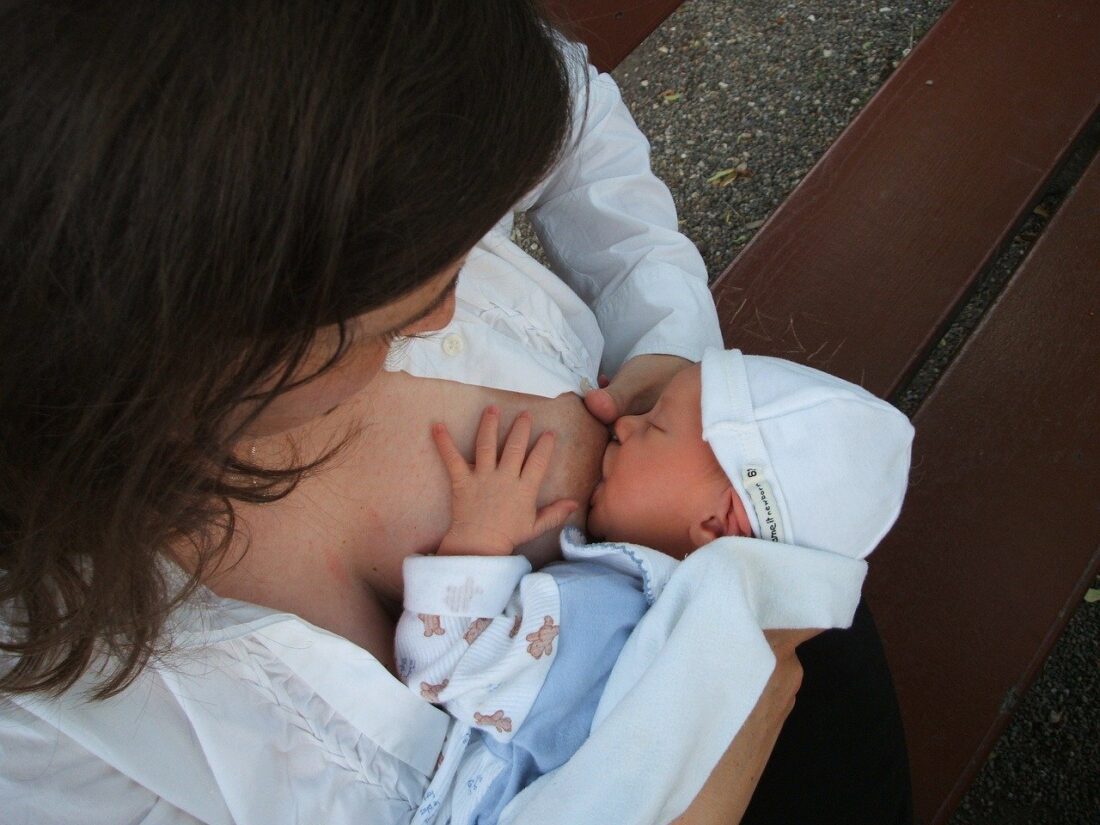7 Breastfeeding Tips Every Mother Should Know

 Nursing your baby, on top of all the other mom duties, is no easy feat. Although nursing may be natural, it is also very difficult. According to the Centers for Disease Control and Prevention, only 57% of moms are still nursing six months after they began. That number is certainly low, despite recommendations to breastfeed up until 6 months. There are many benefits for your baby if you breastfeed, but it takes some patience and time to figure out the right method for you. Follow along in this article for some much-needed tips on breastfeeding for a new mother to obtain success.
Nursing your baby, on top of all the other mom duties, is no easy feat. Although nursing may be natural, it is also very difficult. According to the Centers for Disease Control and Prevention, only 57% of moms are still nursing six months after they began. That number is certainly low, despite recommendations to breastfeed up until 6 months. There are many benefits for your baby if you breastfeed, but it takes some patience and time to figure out the right method for you. Follow along in this article for some much-needed tips on breastfeeding for a new mother to obtain success.
Reach out for help
If you’re struggling to breastfeed, there are resources available for you. Consider meeting with a lactation consultant or a nursing expert to offer guidance and support. Lactation consultants help new moms in their efforts to breastfeed. It’s best to do your research to find one in your area and make sure they are certified. They are experts in this space, so they should be able to pinpoint your issues and counsel you through your breastfeeding.
Create a space for breastfeeding
You’ll want to feel comfortable in your space. If you have a nursery, try to arrange a space for breastfeeding. You’ll want to have things like snacks, a good book, and a pillow for the baby. You will spend a lot of time here, so you want to make it your stress-free zone. There are two positions that are recommended for breastfeeding, lying on your side with your baby facing you or sitting in a reclined position with your baby lying in your arms. The more you consider your own comfort, the more the baby will also be comfortable. So it’s a win-win situation.
Allow your baby to determine how long and often you breastfeed
Right now, your baby knows their needs better than you do. Don’t try to determine how often you feed yourself, let your baby do it. If your baby wants to feed more often than you would imagine, allow it. On the other hand, if the baby is still sleeping and you know it’s their time, let them rest peacefully.
Your baby will also know how long they want to nurse. Remember, your little one knows how much they need better than you right now. Overall, listen to your baby and try to follow that pattern.
Leaking is natural
During the first few weeks of breastfeeding, milk may leak from your breasts. This is natural and not anything you should be alarmed from. Surprisingly, mothers are so intuitive it can happen when you are thinking about your baby or even if you hear another baby cry. Eventually, the leaking will disappear completely as your baby continues to nurse. In the meantime, if you need to fix this issue you can place a nursing pad in your bra to absorb any leaks.
Take care of your skin
The skin on your breasts is very delicate and tender. Be sure to take care of your skin during this time. When you’re nursing, your skin can become very dry and irritate over time. Take care of your skin with a healing product and be sure to pat your breasts with a dry cloth after breastfeeding. Don’t shower too much and overwash the area, it can actually dry out your skin more in the long run.
Stay hydrated
It is important to stay hydrated, especially since you are eating and drinking for two. Water replenishes the body so try to drink some before or after you breastfeed to remain hydrated!
There are options if you cannot breastfeed
Supplementing with formula is nothing you should be ashamed of. In fact, women everywhere do this with no issues. Obviously, it is best to wait as long as you can to us formula, instead of your own breast milk– but there are healthy ways to introduce this to your baby. Feeding the baby should be paced and you should try to mimic the flow of traditional breast milk. Remember, that if you experience a shortage of breast milk or you have a medical condition, this may be a good reason to use formula without feeling bad about it!

